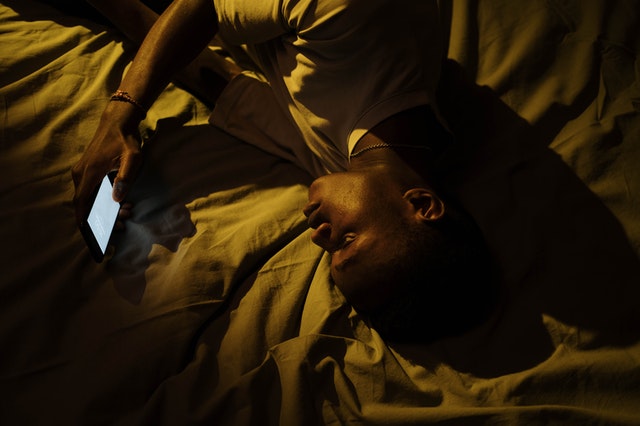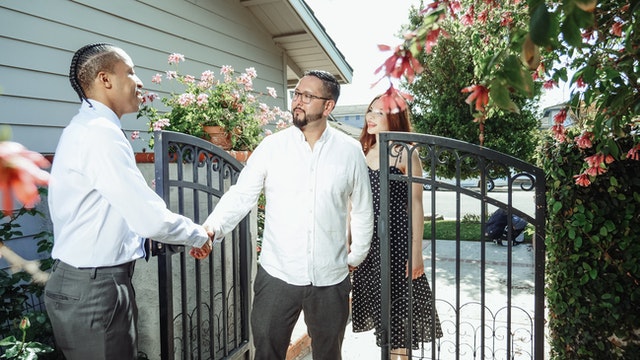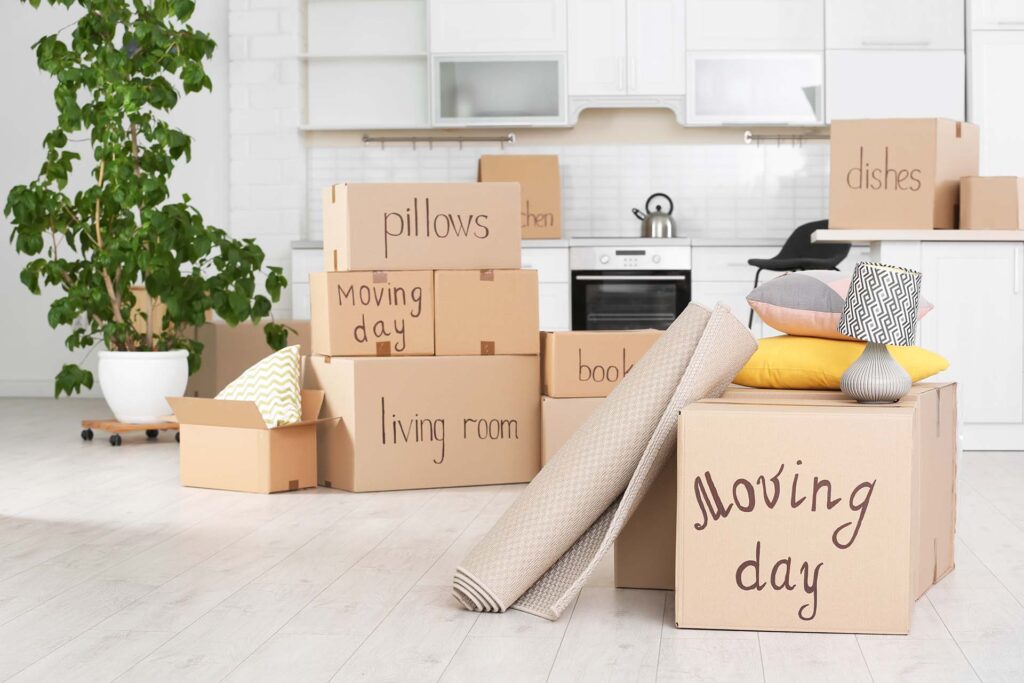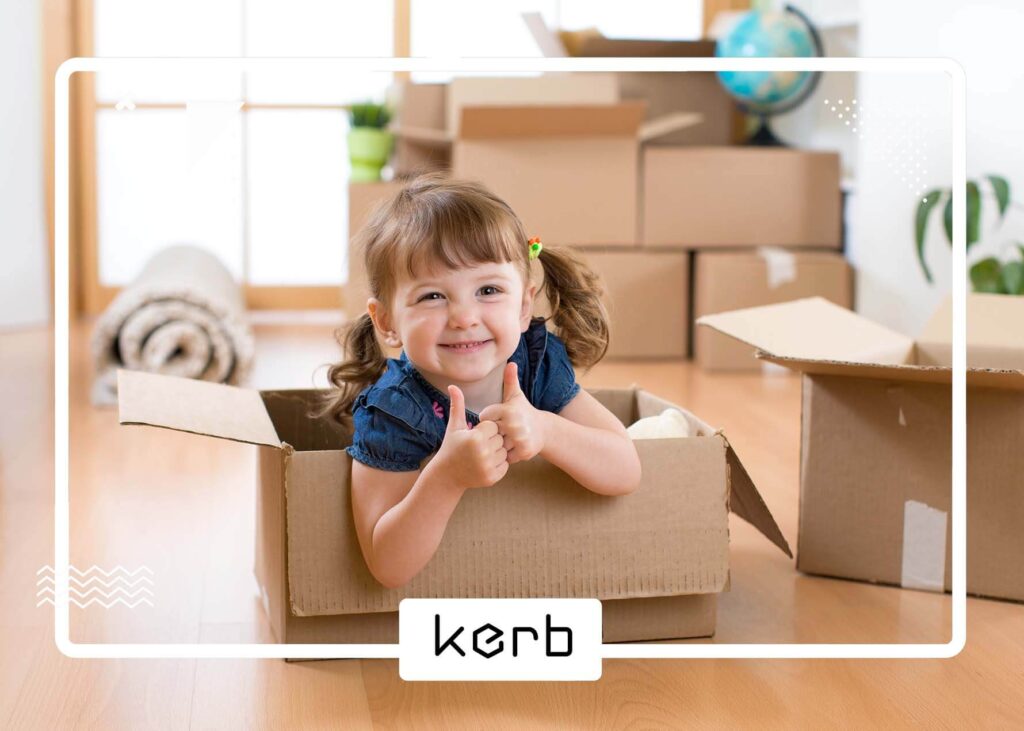Around 18 million Americans have at least one major depressive episode each year. There can be numerous reasons to feel sad and blue, and transforming your entire life is one of them. And yes, depression after moving is a real thing that can disturb your emotional and mental stability. Changing everything from the root can be exhausting both physically and psychologically. Still, if you know how to recognize the symptoms and implement some coping mechanisms, this disorder can be beaten.

Going across the country, changing house, and going away from friends and family are just some of the reasons we feel sad once we relocate. From butterflies in your stomach to nostalgia and doubts, and questions like “should I move back home” will become part of your life once you relocate. These feelings are perfectly normal, but if sadness and hopelessness become something you experience all the time, you should consider implementing some coping mechanisms and ways to deal with them.
What Is Depression?
Feeling sadness and grief is a normal human condition we all feel from time to time. But if these feelings don’t go away and last for longer periods, you’re probably dealing with some type of depressive disorder. If left untreated, this disorder can lead to serious health problems, including putting your life at risk. There are several types of Major Depressive Disorders or MDD, and depending on what causes them, the treatment approaches are different. Here are types of Major Depressive Disorders:
- Seasonal – Emerges during some part of the year, usually in wintertime.
- Bipolar disorder – Classified as mood swings between depressive feelings and highly elevated energy.
- Psychotic depression – Happens when a person experiencing severe depressive episodes starts having delusions or hallucinations.
- Adjustment disorder – It is triggered by significant life events like long-distance moving.
- Postpartum disorder – Mothers may feel disconnected from their babies after giving birth.
- Premenstrual Dysphoric Disorder – Mood swings that happen in the second part of the menstrual cycle.
- Persistent Depressive Disorder (Or dysthymia) – A chronic form of this disorder with mild symptoms that last longer. It is also described as living on autopilot.

Depression After Moving Is a Real Thing
As mentioned above, situational or relocation depression (adjustment disorder) happens after major life-changing events. And even if this condition is more common in children and teenagers, adults can experience it too. And adjustment to a new environment and way of living can turn out to be harder for some adults than for kids. Dealing with this condition and our feelings is not an easy job, and the first step you need to take is to grasp the reasons and symptoms. When you know what you are dealing with, you will easily learn the answer to, “How do you cope with moving to a new place?”
Reasons That Triggers Post Moving Depression
From cultural shock to relocating away from friends and family, a relocation is a major event that can bring us both joy and sadness. Relocating to a new state or even city or home may lead to feelings like isolation, nostalgia, missing your loved ones, or even feeling resentful if you relocated for love without any other motivation. Also, financial uncertainty if you are relocating without a job can lead to substantial emotional issues such as fear, anxiety, and in the end, depressive feelings. This is why no matter your reasons for a move, you should be prepared and look for signs and symptoms of these conditions.

Main Relocation Depression Symptoms
After the adrenalin rush of relocating to another city wears out and you finish unpacking your boxes, reality kicks in. You are in a different and unknown place while your old life continues to roll on. Friends and social activities so familiar to you are far away now. And if you are relocating to a new state alone, this can be even harder than relocating with kids and spouses. And if you wonder can houses cause depression, the answer is not the house itself, but the change of environment. In order to keep your emotional state in place, you need to be familiar with the symptoms of this disorder. Here are some symptoms to watch for:
- Lack of interest in anything,
- Fearfulness,
- Can’t get out of bed,
- Forgetfulness,
- Having difficulties leaving the house,
- Isolation,
- Hopelessness,
- Agitation,
- Finding it difficult to concentrate,
- Aggression.

How to Cope When Feeling Depressed After Moving Into New House
Now that you know how to recognize it, it is the moment to answer the question, “how do I stop being sad about moving?” There are several ways to cope with moving depression, but if symptoms don’t fade away in a couple of weeks, it is advisable to seek professional help. Also, if this condition is followed by some other psychological problems like insomnia, anxiety, or panic attacks, you should definitely consider seeking counseling.
Reduce Stress During Relocation
The first relocating tip we can give you to reduce depressive feelings after the relocation is to make it as stress-free as possible in the first place. From packing pots and pans to finding the best cross country movers, you will have a lot of things on your mind. And believe it or not, relocation stress can exhaust you even more. Furthermore, if you are prone to feeling blue and anxious, you should do whatever is in your power to reduce your stress to a minimum.
Find one long-distance moving company that can provide you with everything you need, not only basic long-distance moving services. Aside from this service, you will need someone for auto shipping as well. And if your relocation budget allows you, hire long-distance movers for storage service or even for packing. Having someone to pack your fragile items will relieve you of headaches when unpacking. The cheapest way to move out of the state is with cross-country moving services, and in the end, you will move efficiently and have more time to deal with other things and, most importantly, dedicate time to yourself.
Find New Interests – Embrace New Life
When you made a decision about where to live, you probably had your reasons to pick that particular city. Whether it’s one of the best cities for young professionals or a place where you can settle down with your family, you chose this place because you like it. Don’t let sadness and nostalgia take over. Go outside and explore your surroundings. Even if you are relocating to a small town, it probably has its charms you never gonna see if you are lying in your bed all day. If you look on the positive side of your relocation, you will see so many benefits of relocating, and one of them is the chance to start over and do some things you always dreamed of. Find a local dance club and take those lessons you always wanted to. Go online and search for clubs where people with the same hobby as you gather and join them.
Meet Your Neighbors
One of the first things to do after the relocation is to meet your neighbors. Even if you are not into small talks and chit-chats, having someone to say hi to every day will benefit your state of mind. Getting used to different surroundings will be much easier if you have someone who can guide you and refer you to the good and bad sides of the neighborhood. Also, if you are unemployed, your neighbors can give you guidance on how to get a job which will definitely reduce stress and anxious feelings.

Hanging Out With New People Is Excellent for Mental Health
Aside from your neighbors, you should be open to meeting new people and engaging in social activities. And yes, we know meeting people of a certain age can be difficult, but it’s not impossible if you are willing to give it a try.
For example, if you relocate with pets, you can find a pet-friendly coffee shop and hang out there. People with pets are more likely to have a casual conversation with someone with pets too.
Also, don’t hesitate to go to social events. Install the GoTonight app and search for local events. You will feel better once you leave home, and who knows, you might find some friends along the way.
Exercise More Often
If you packed shoes for running, it’s time to use them. The best medicine for feeling blue is to exercise more often. By exercising, your body produces endorphins, boosting your mood and making you feel more energetic and refreshed. Walking around the block is good enough if you don’t want to join a gym or some sports team.
For more information about how to cope with depressive feelings, check out this video.
Get the Right Support – Helplines and Other Support Groups
On the other hand, if you are still feeling depressed after moving, you should seek help from mental health professionals. But if you are afraid to visit your doctor, call National Helpline SAMHSA and talk with experts anonymously and seek their advice. If you have any kind of suicidal thoughts, immediately call National Suicide Prevention Lifeline, friends and family, or some other support you have. Or you can call 911 and tell them about what you are experiencing, and they will help you too. Talk about your problems and feelings as much as you can and seek advice from people who had similar experiences. These services are free of charge and completely confidential, so when feeling blue, sad, and hopeless, do not hesitate to reach out to people for help.

When to Reach Out to Professional Help
How does moving affect mental health? As we said in this article, relocation can lead to depressive feelings, but it can also lead to happiness and joy. And even if now this doesn’t seem like something that will happen to you, trust us – it will come in time. You will make friends and have socially active living in your city of choice.
But if your adjustment is taking too long and you experience some other symptoms, you should seek professional help. There is no shame in doing so. Maintenance of our mental health is equally important, like tooth brushing or prostate examination. Seeking help from the therapist does not make us weak, but strong and reasonable. Finding a therapist is the best decision you can make, even if you are feeling fine. We all need someone to talk to.






